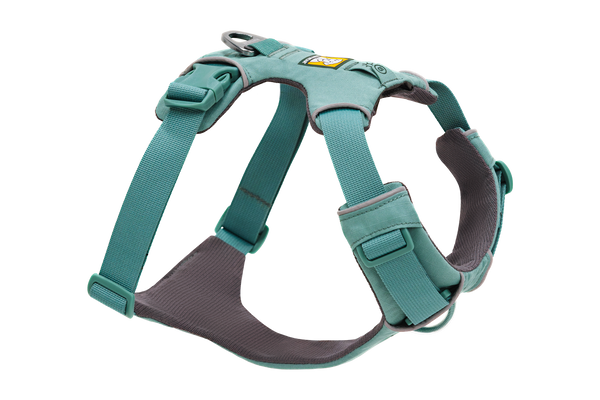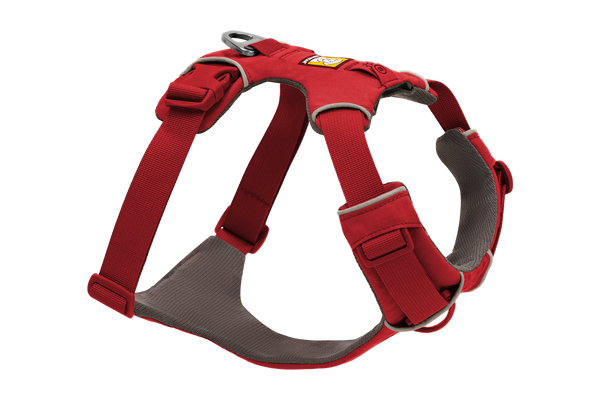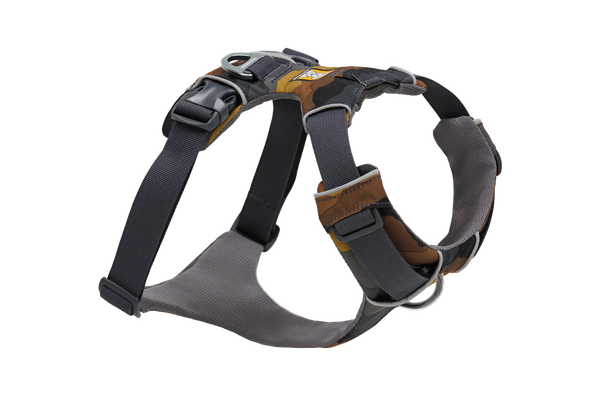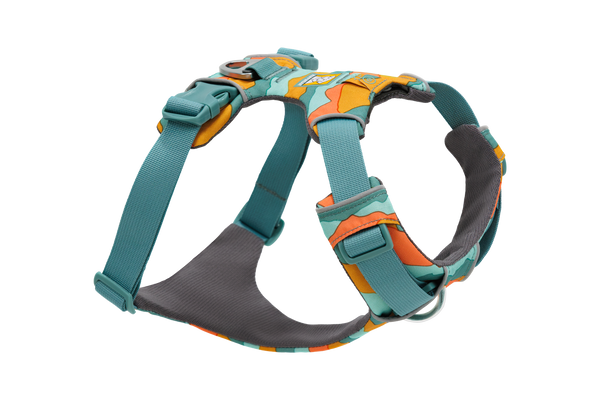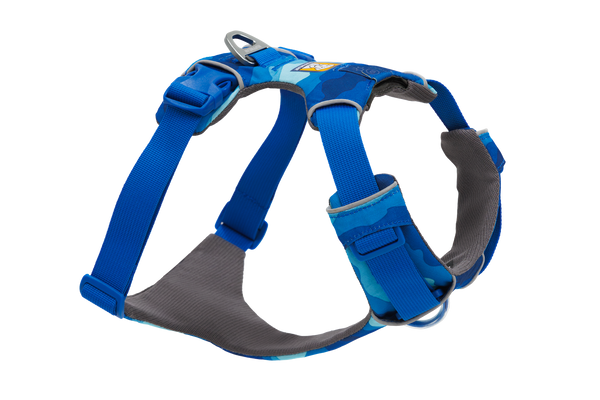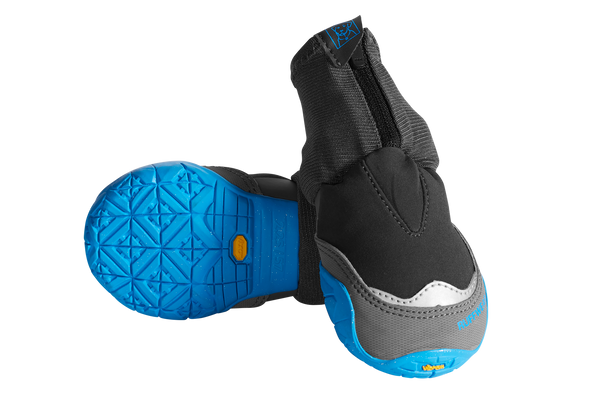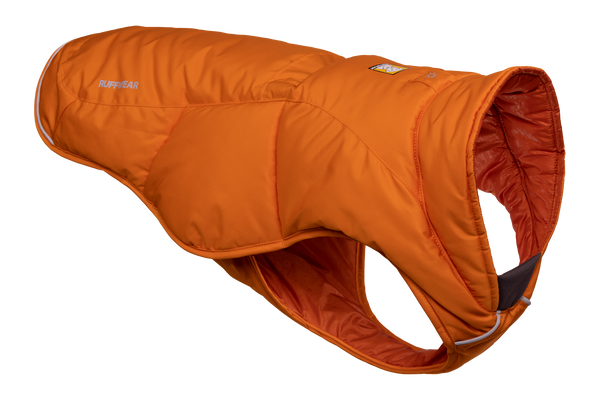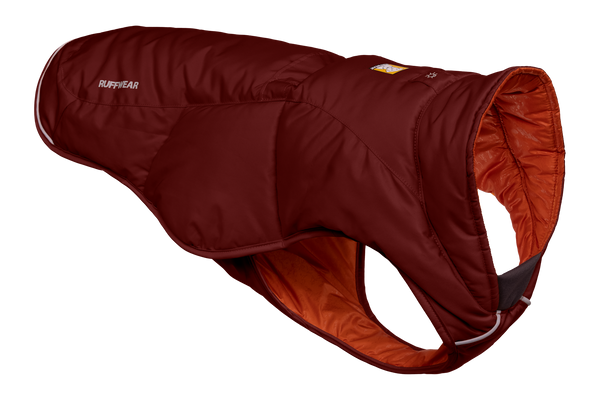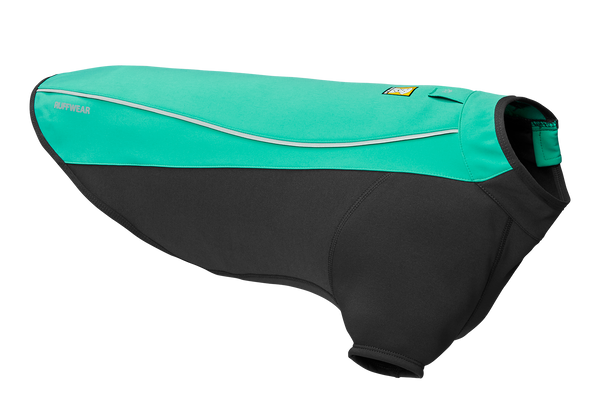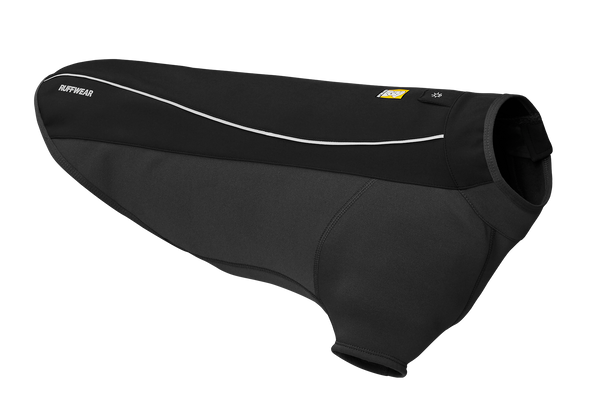Talking Carbon & Sharks with Our New Sustainability Manager
Ruffwear recently welcomed David Bennett (and his dog, Ginger) to the Pack as our Senior Sustainability Manager. We caught up recently to learn more about him and the work the team is doing to support Ruffwear's sustainability journey.
First things first, let's cover some essential information. What is:
Your favorite trail snack? Bananas. And Ginger gets the very top and the very bottom - I never liked those tough little parts of the banana.
Ginger’s current favorite RW gear? The Bivy™ Bowl
Your favorite trail you’ve ever been on? Wolf Ridge (George Washington National Forest)
Ginger's signature quirk or secret talent? My favorite quirk of Ginger’s is that she’s overly and unnecessarily selective about who she lets pet her.
Your secret talent? I can write kids' songs on-demand/in real-time.

Alright, now onto the usual – can you introduce yourself, your dog, and your role here at Ruffwear?
I’m David, and my 10-year old dog Ginger has been with my wife and me since we adopted her from the SPCA when she was eight weeks old. Ginger’s put in a lot of time on trail runs and nordic ski sessions, but these days, it’s more about car camping, walking our local trails, and sticking her feet in a nearby river or lake.
At Ruffwear, I’m a member of the Supply Chain team where I focus on supporting sustainability initiatives across our operations and products - so, that covers everything from the materials we select to how our final products make their way into our customers’ hands.

What is one thing you're working on right now that you're stoked about?
One project that I’m really excited about is the work we’re currently doing to develop Ruffwear’s first-ever climate action plan. I really love the way the plan is taking shape - it includes a detailed assessment of where we stand today in terms of our annual greenhouse gas (GHG) emissions as well as a target for the percentage reduction in those emissions that we are going to aim for.
The great thing about how we’re approaching our reduction target is that we’re relying on some great science to inform how much we should reduce by and by when (our target date). Having a target be science-based brings a lot of integrity to the work and I think that’s important to everyone on the Ruffwear team.
So, I’m definitely excited about the work we’re doing to develop that plan, and I’m also really excited about the work that we’ll be doing in the coming years to achieve our climate targets.

"Sustainability" can mean so many things. What does it mean at Ruffwear?
Sustainability has been a part of the Ruffwear story since our founder, Patrick, first started developing products in the early 1990s. What it meant then looks different than what it means now. And, we’re in the process of clarifying (internally) what we mean when we say “sustainability”.
Right now, when we think about sustainability at Ruffwear, we think about six key impact areas:
- Carbon & Energy
- Chemistry
- Conservation
- Waste
- Water
- Supplier Social Responsibility
One example of how we’re aiming to do more good is through our goal of being climate positive by 2030. What that means is, over the next few years, we’ll be reducing our GHG emissions in-line with a science-based target and also aiming to remove more GHG from the atmosphere than we emit while advocating for broader systemic change related to climate policy and natural resource protection.
This work is really ambitious and we’re by no means trying to do it alone - we’re a part of the Outdoor Industry Association’s Climate Action Corps which is a group of peer companies in the outdoor industry who have similar aspirations and are working really hard to make a difference.

What are some opportunities for Ruffwear to do better - and how is Ruffwear looking to make progress in those areas?
One area where we want to get better is, we want to have a more detailed map of exactly where and how the materials that go into our products flow through our network of suppliers.
Supplier networks are often deeper and more complicated than most people realize and understanding those networks is a really tough thing. But, establishing a clear and accurate map of that network is pretty critical so we can measure and optimize our environmental and social impacts.
You’ve mentioned carbon and carbon dioxide a couple times. Why is focusing on carbon such a high priority?
Carbon dioxide is a greenhouse gas and, as a result, it’s directly related to climate change, and climate change is an urgent matter with broad-reaching impacts - some of which we’re seeing the effects of right now.
In traditional conservation work (which is where I started my career), there’s often a focus on protecting and restoring populations of species high up on the food chain. If you focus your efforts at that higher level, you end up addressing a lot of the underlying issues that impact the web of species and habitats that the top predators rely upon.
Meaning, if you work to protect sharks, you end up also providing protections for the tuna that those sharks eat, the other fish and invertebrates that those tuna eat, and importantly, you also end up protecting the aquatic habitats used for food and shelter to species through all levels of the food chain.
The farther upstream you can target, the more downstream benefits you can deliver.
So, prioritizing climate change is a bit like focusing on sharks for conservation because with climate change, there’s a downstream set of issues that cascade from changes in our climate - from the quality of our air and water all the way to the patterns of our weather.
For Ruffwear, our focus on climate change can show up in a number of different ways. For example, we’ve taken steps such as installing solar panels on the rooftop of our headquarters.
In terms of how we’ll reduce our carbon emissions on a larger scale, it’s really going to come down to our products – the materials we select to make our products, the energy mix that goes into the facilities in which those products are made, and also the energy required to get those products out to our customers.
I mentioned this briefly earlier, but it's worth mentioning again: decarbonization at this scale is not something that Ruffwear can do by going it alone. In order to accelerate the rate of adoption of energy efficiency and renewable energy within our supply network, we really do need to collaborate with peers in our industry that are customers of the same suppliers that we’re working with.
That sounds like the work behind the Climate Action Corps that Ruffwear is a part of. Can you briefly explain what the Climate Action Corps is and how Ruffwear is involved?
Climate Action Corps (the Corps) is about participating in an industry-wide initiative to work together to address our environmental impacts. We joined the Corps as a founding member, and as part of the commitment we’ve made to the the Corps, we’ll:
- Measure our current carbon footprint
- Set ambitious greenhouse gas reduction goals
- Create plans specific to Ruffwear and pursue reductions over time
- Publicly share our progress each year
We’ll get to collaborate with other members of the Corps in reducing carbon emissions and ensure that together, we are a force for climate action. There’s more info on what that all looks like here.

Awesome. Thank you, David. The topic of sustainability is deep and complex, yet core to Ruffwear’s work. How can folks interested in following our journey and staying updated on our progress learn more?
Part of Ruffwear’s journey with sustainability isn’t just doing the work but also being transparent about it. We share updates on the Ruffwear blog and through our emails, you can find info about material choices on the product pages, and, just recently, the Climate Action Corps released their Year One Progress Report that we were featured in – you can check that out here.



